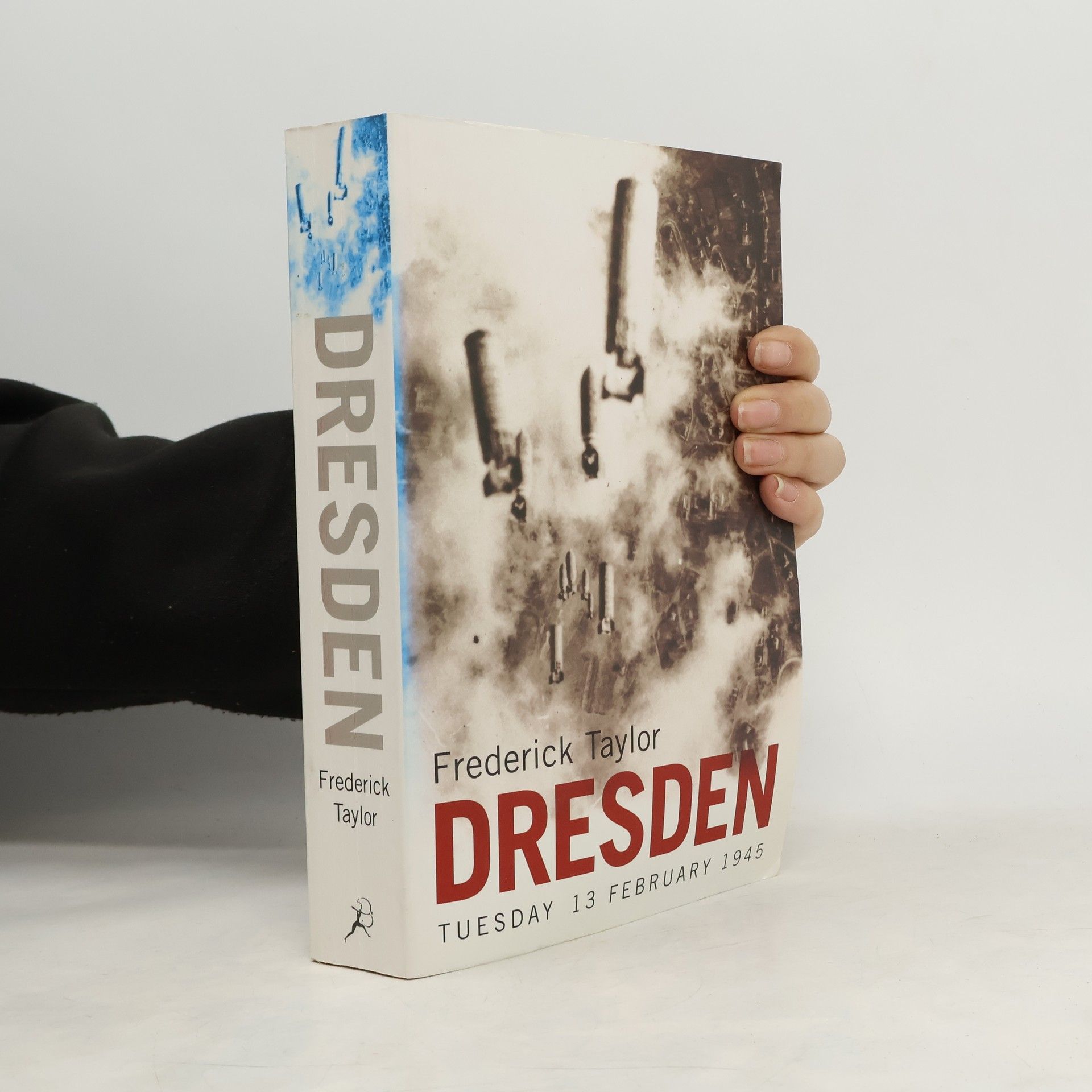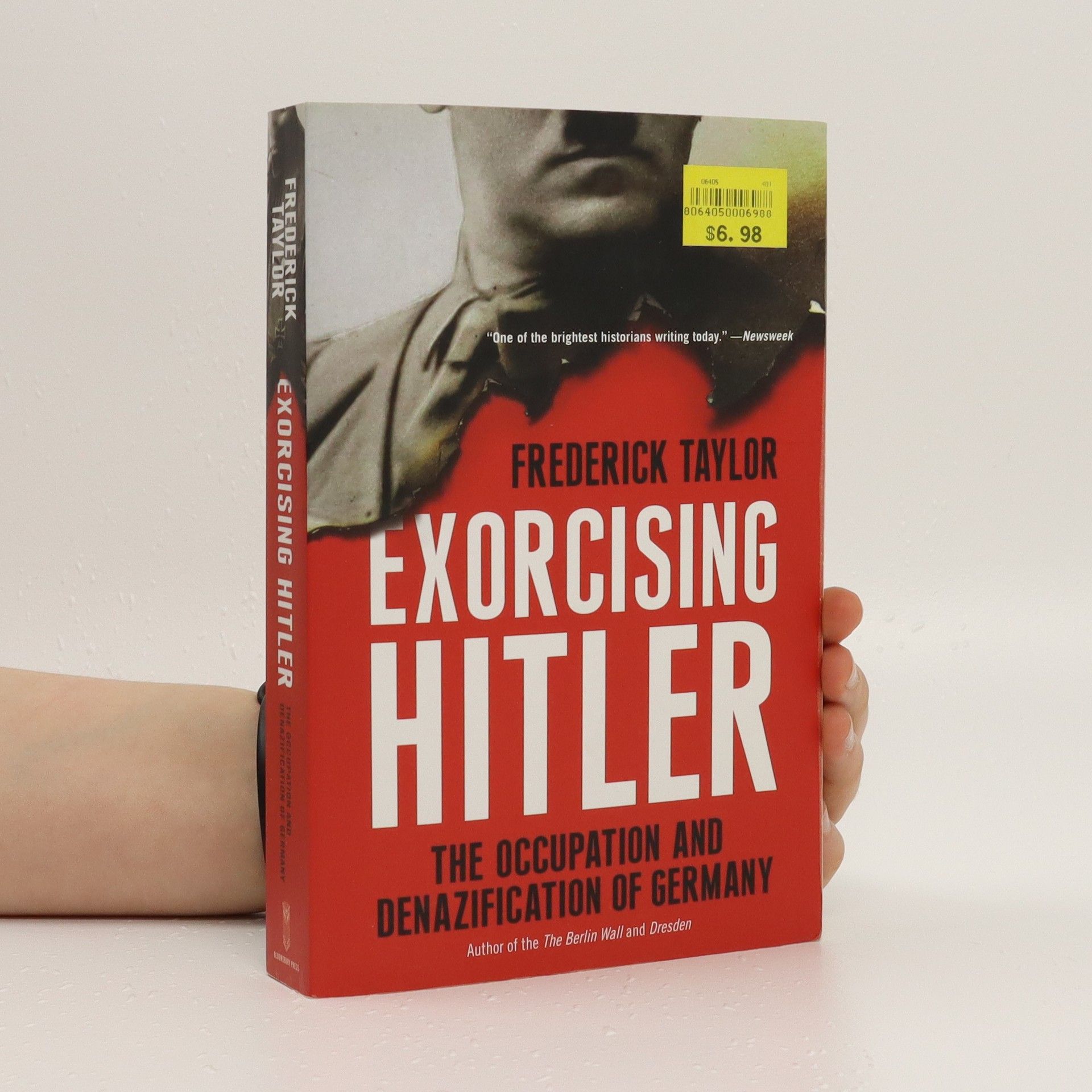The narrative chronicles Fred Taylor's remarkable six-decade journey in the entertainment industry, where he played a pivotal role in developing three prestigious clubs. It highlights his talent for discovering, promoting, and managing numerous renowned stars, offering an insider's perspective on the evolution of showbiz. The story captures the essence of dedication and passion within the vibrant world of entertainment.
Frederick Taylor Livres
Frederick Taylor est un auteur britannique spécialisé dans l'histoire moderne de l'Allemagne. Ses œuvres plongent dans les événements complexes et les courants sociaux de l'Allemagne, examinant en particulier la montée de l'extrême droite au début du XXe siècle. Le style de prose de Taylor est méticuleux et analytique, permettant aux lecteurs de saisir la profondeur des événements historiques. Sa capacité à relier la précision historique à une narration captivante en fait une voix importante dans la littérature historique.






Dresden : Tuesday, 13 February 1945
- 544pages
- 20 heures de lecture
At 9.51 pm on the 13th of February 1945 an airstrike on Dresden started that left at least 25,000 people dead and 13 square miles of the centre destroyed. In this study of that night Taylor has researched in German, American and British archives and talked to those involved on all sides.
On 13th February 1945, Dresden's air-raid sirens sounded but the guns had mostly been moved East to counter the Russian advance. By the next morning, 796 RAF Lancasters and 311 USAAF Flying Fortresses had dropped more than 4,500 tons of high explosives and more than 25,000 inhabitants perished. This work gives a re-appraisal of this event.
The appearance of a hastily-constructed barbed wire entanglement through the heart of Berlin during the night of 12-13 August 1961 was both dramatic and unexpected. Within days, it had started to metamorphose into a structure that would come to symbolise the brutal insanity of the Cold War- the Berlin Wall. A city of almost four million was cut ruthlessly in two, unleashing a potentially catastrophic East-West crisis and plunging the entire world for the first time into the fear of imminent missile-borne apocalypse. This threat would vanish only when the very people the Wall had been built to imprison, breached it on the historic night of 9 November 1989. Frederick Taylor's The Berlin Wall reveals the strange and chilling story of how the initial barrier system was conceived, then systematically extended, adapted and strengthened over almost thirty years. Patrolled by vicious dogs and by guards on shoot-to-kill orders, the Wall, with its more than 300 towers, became a wired and lethally booby-trapped monument to a world torn apart by fiercely antagonistic ideologies. The Wall had tragic consequences in personal and political terms, affecting the lives of Germans and non-Germans alike in a myriad of cruel, inhuman and occasionally absurd ways. The Berlin Wall is the definitive account of a divided city and its people.
The Berlin Wall
- 486pages
- 18 heures de lecture
The definitive - and very human - account of a divided city and its people from the acclaimed author of Dresden
Set in the autumn of 1938, the narrative explores the fragile optimism in Europe as it emerges from the devastation of the Great War. The populace yearns for peace and stability, yet within a year, pivotal decisions by a handful of leaders plunge the continent back into conflict. This shift not only alters the course of history but also deeply affects the lives of millions, highlighting the precarious nature of peace and the far-reaching consequences of political choices.
Exorcising Hitler. The occupation and denazification of Germany
- 480pages
- 17 heures de lecture
The first major account of the birth of democracy in the ruins of Hitler's Germany, from "one of the brightest historians writing today" (Newsweek)
1939: A People's History of the Coming of the Second World War
- 448pages
- 16 heures de lecture
Set against the backdrop of autumn 1938, the narrative explores the stark transition from optimism for peace to the grim reality of impending war in Europe. Utilizing contemporary diaries, memoirs, newspapers, and interviews, it vividly captures the emotions and experiences of individuals as they faced the rise of the Second World War, providing a personal and historical perspective on this pivotal moment in history.
The Principles of Scientific Management
- 61pages
- 3 heures de lecture
"Frederick Winslow Taylor (1856-1915) was an American mechanical engineer who sought to improve industrial efficiency. He is regarded as the father of scientific managment and was one of the first management consultants. Taylor was one of the intellectual leaders of the Efficiency Movement and his ideas, broadly conceived, were highly influential in the Progressive Era"--Page 4 of cover.
Reeds Vol 16: Electrical Power Systems for Marine Engineers
- 336pages
- 12 heures de lecture
This title addresses the growing dependence on electrical power systems within the marine and offshore sectors. It is part of the esteemed Reeds Marine Engineering Series, highlighting its relevance and expertise. The book aims to equip readers with essential knowledge and skills related to electrical engineering in maritime contexts, reflecting current industry trends and practices.

